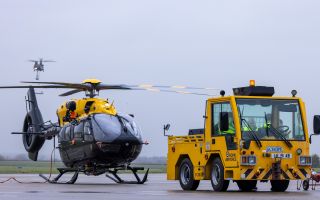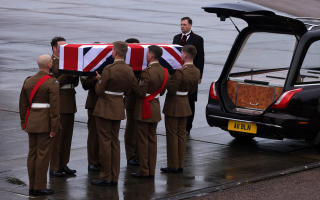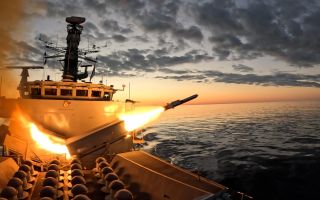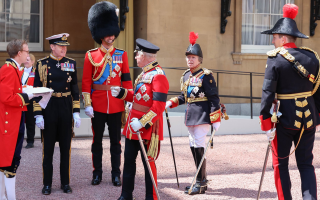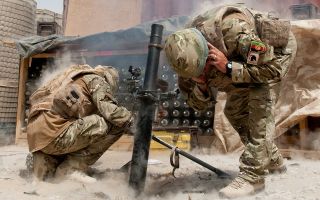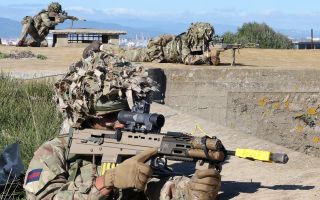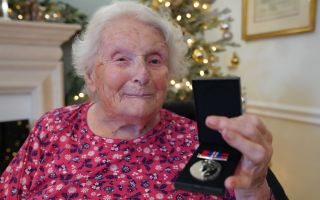Royal Navy comes to the 'rescue' of Swedish submarine during Exercise Baltops
The Royal Navy has come to the rescue of Swedish submariners when they had an "emergency" on Nato exercises in the Baltic.
HMS Dasher, which operates out of Portsmouth, answered the plea for help and conducted what is thought to be the first-ever resupply by the class of fast patrol boats and a submarine in their near 40-year careers – sending ground coffee across to their allies in the ocean.
The delivery came during a very serious Nato exercise, Exercise Baltops, to bolster security and safety in the region, which has been taking place for the past 10 days.
During a break from the exercise, Dasher's crew were given orders to help the submarine – u-båt in Swedish – in the middle of the Baltic after the two-dozen crew said they had run out of ground coffee.
Patrol boats like Dasher do not have the full range of weapons, sensors and systems needed to contact a Nato submarine because of their size and regular role.
Therefore, the vessel required a special Nato communications kit on board to deal with the top-secret submarine communications.
Lieutenant Jack Mason, HMS Dasher's Commanding Officer, described the serious nature of the catch-up, officially a replenishment at sea, with the submarine.
"Although on this occasion, it was only ground coffee, we've demonstrated allied co-operation, the ability to communicate between a P2000 and a Swedish submarine via Nato, and the ability for a P2000 to deliver critical stores at short notice to assist with submarines maintaining their operational readiness," Lt Mason said.
When the supplies were delivered, the patrol boat had to remain five metres away since the submarine was pumping out pressurised gas.
Rather than simply giving the rations to the submarine's crew, Seamanship Specialist Able Seaman Cody Prince had to throw a heaving line to the submarine.
Following that, a waterproof bag, filled with coffee and Italian biscuits, was passed over safely, and the caffeine crisis was ended.
After the transfer of goods, Dasher raced away at 20 knots back to her base for the evening.
The vessel has been working with the US Navy surface and aerial drones, frequently 'attacking' the participants to test their responses dealing with small, fast and highly manoeuvrable craft intent on harming much more powerful warships.
The Coastal Forces Squadron's six P2000 patrol boats – HMS Archer, Biter, Dasher, Example, Pursuer and Smiter – have been involved in the exercise.
Two have conducted extensive work with the Royal Navy's Mine Threat and Exploitation Group, who've been using the craft as launchpads for the latest robot tech monitoring the underwater battlespace through uncrewed underwater vehicles (UUVs).
The remaining four vessels have worked with US Navy surface and aerial drones (uncrewed air vehicles or UAVs), frequently "attacking" the participants to test their responses dealing with small, fast and highly-manoeuvrable craft intent on harming much more powerful warships.
Ex Baltops has been running annually since the early 1970s, and this edition involves 50 ships, submarines, support vessels, more than two dozen aircraft, and around 9,000 personnel from 17 nations, all covering an area from Jutland and the Great Belt in the West to the Bay of Gdańsk.

